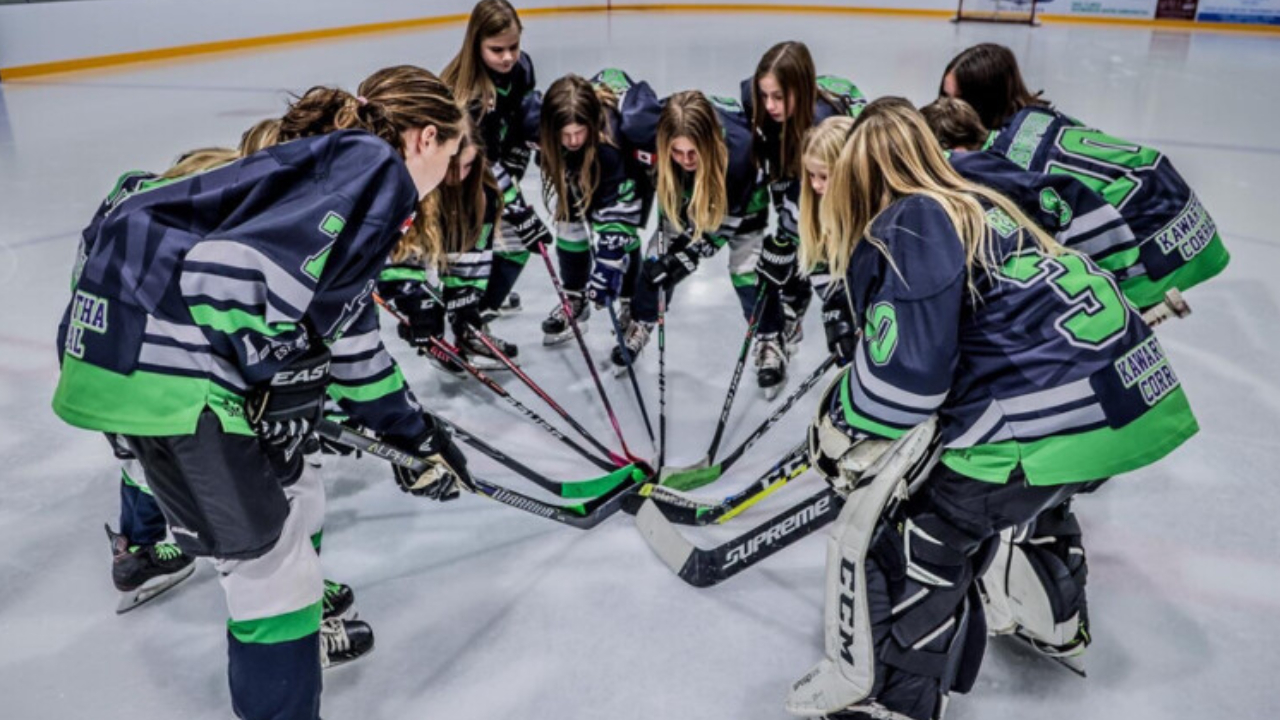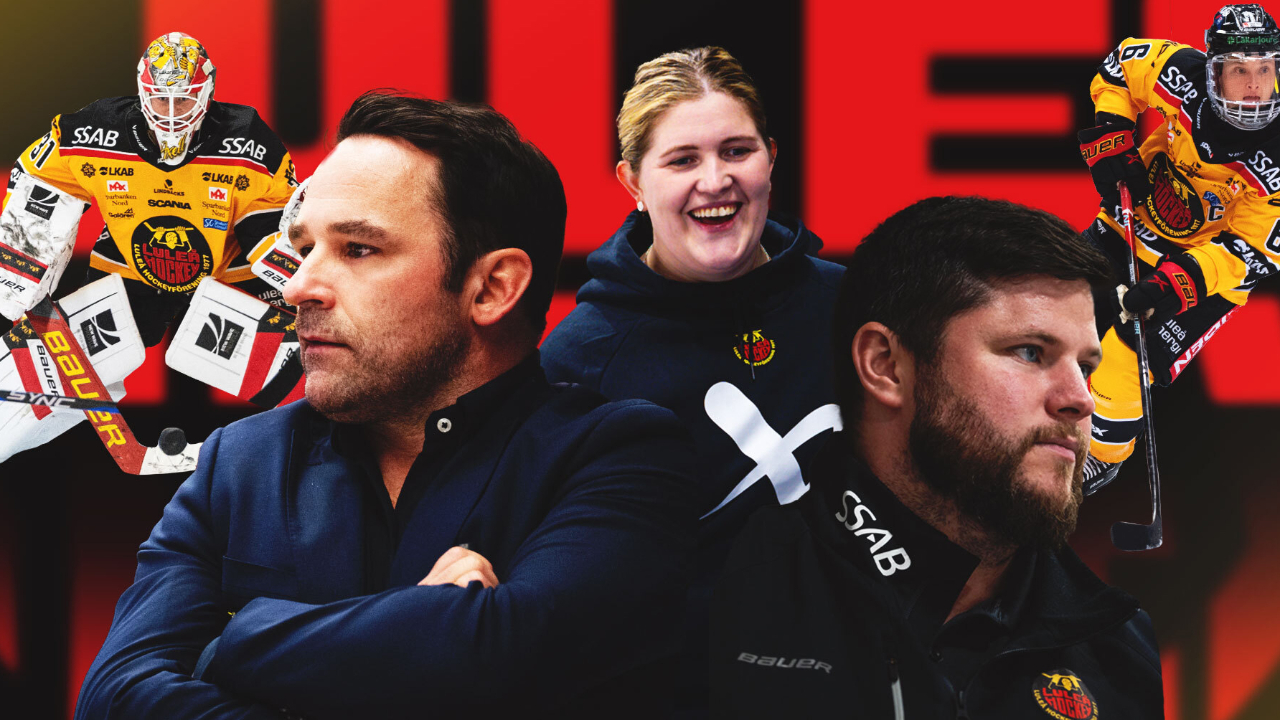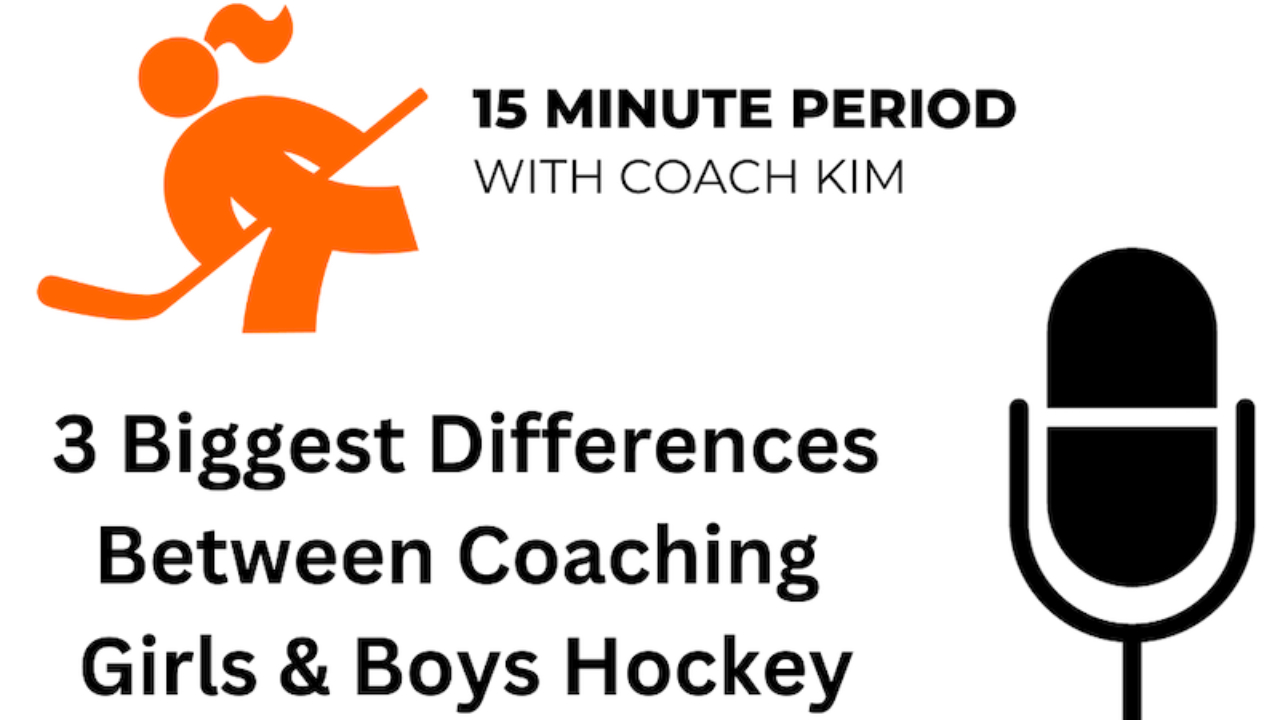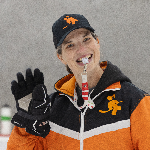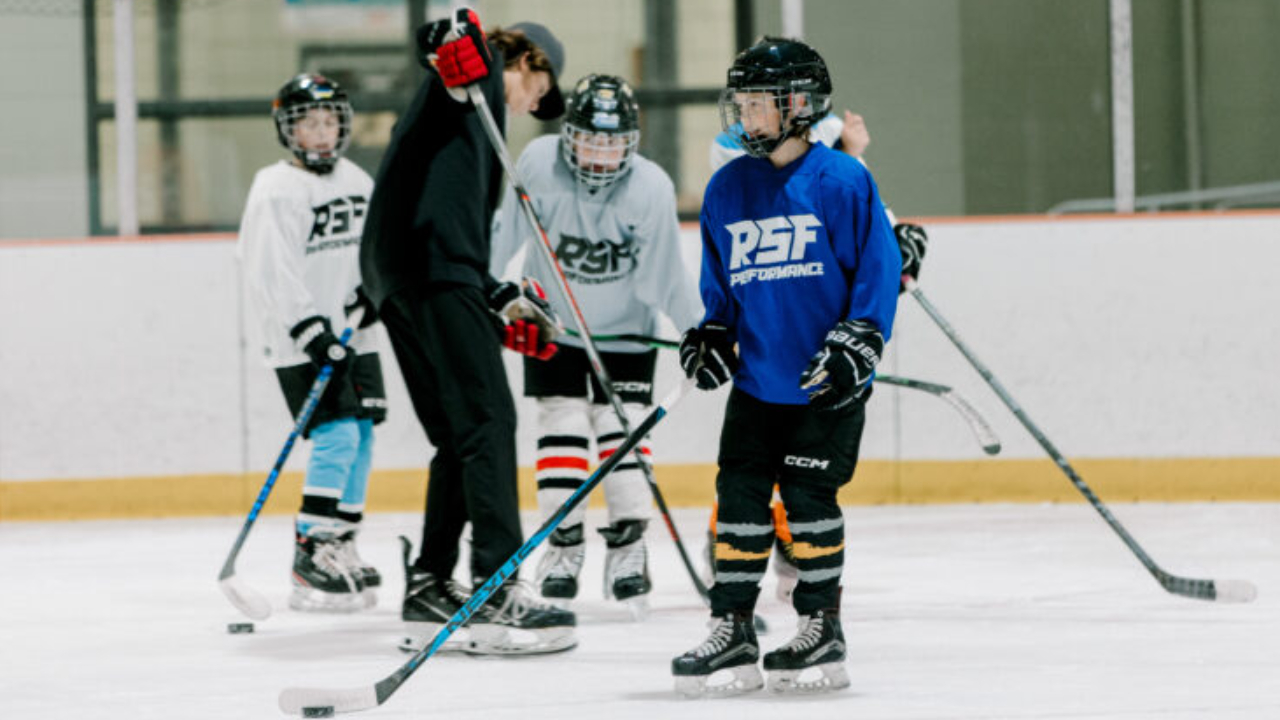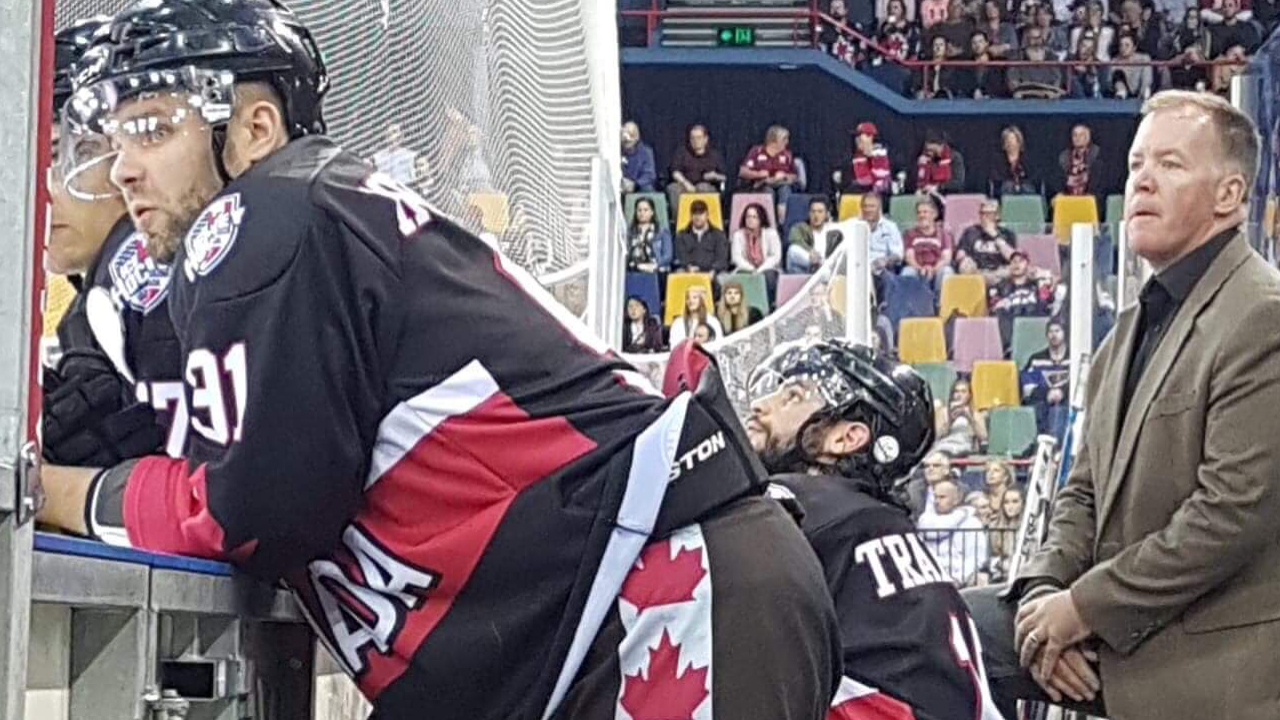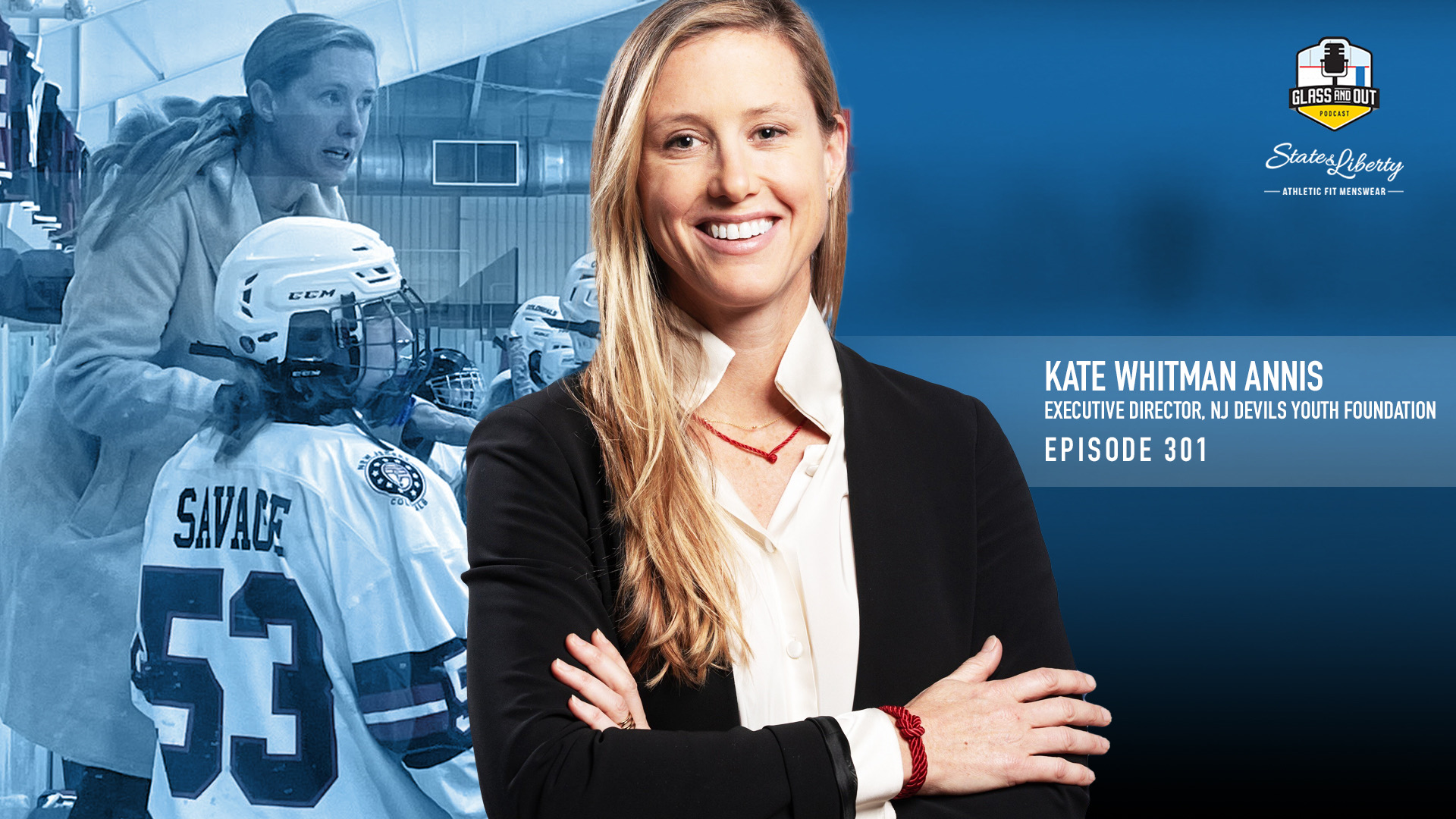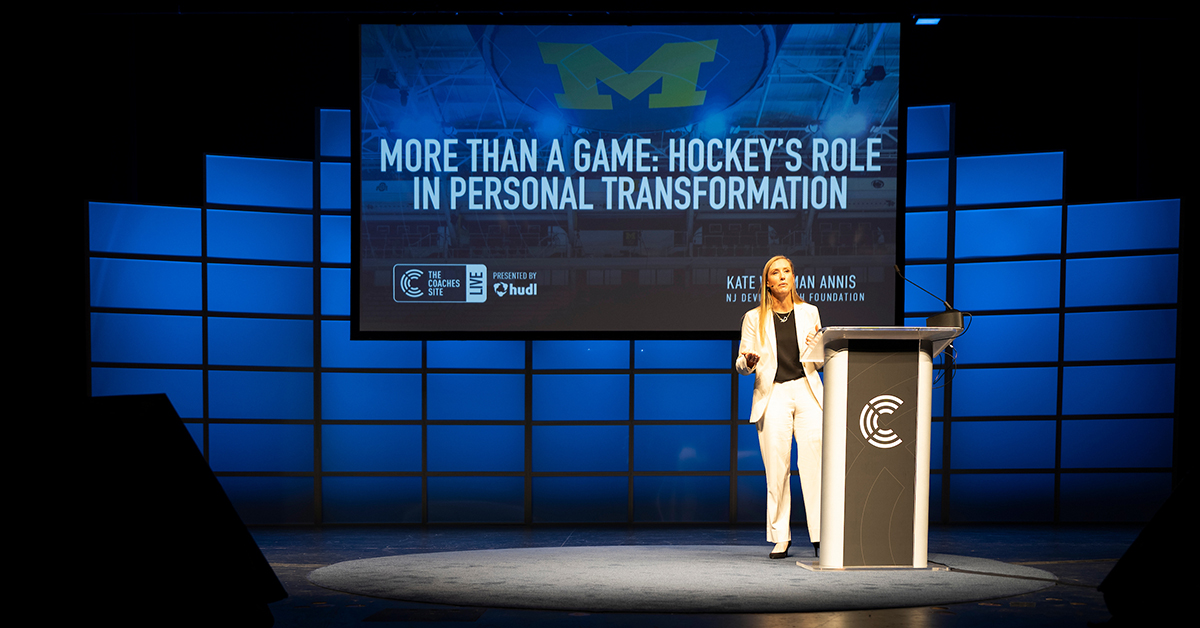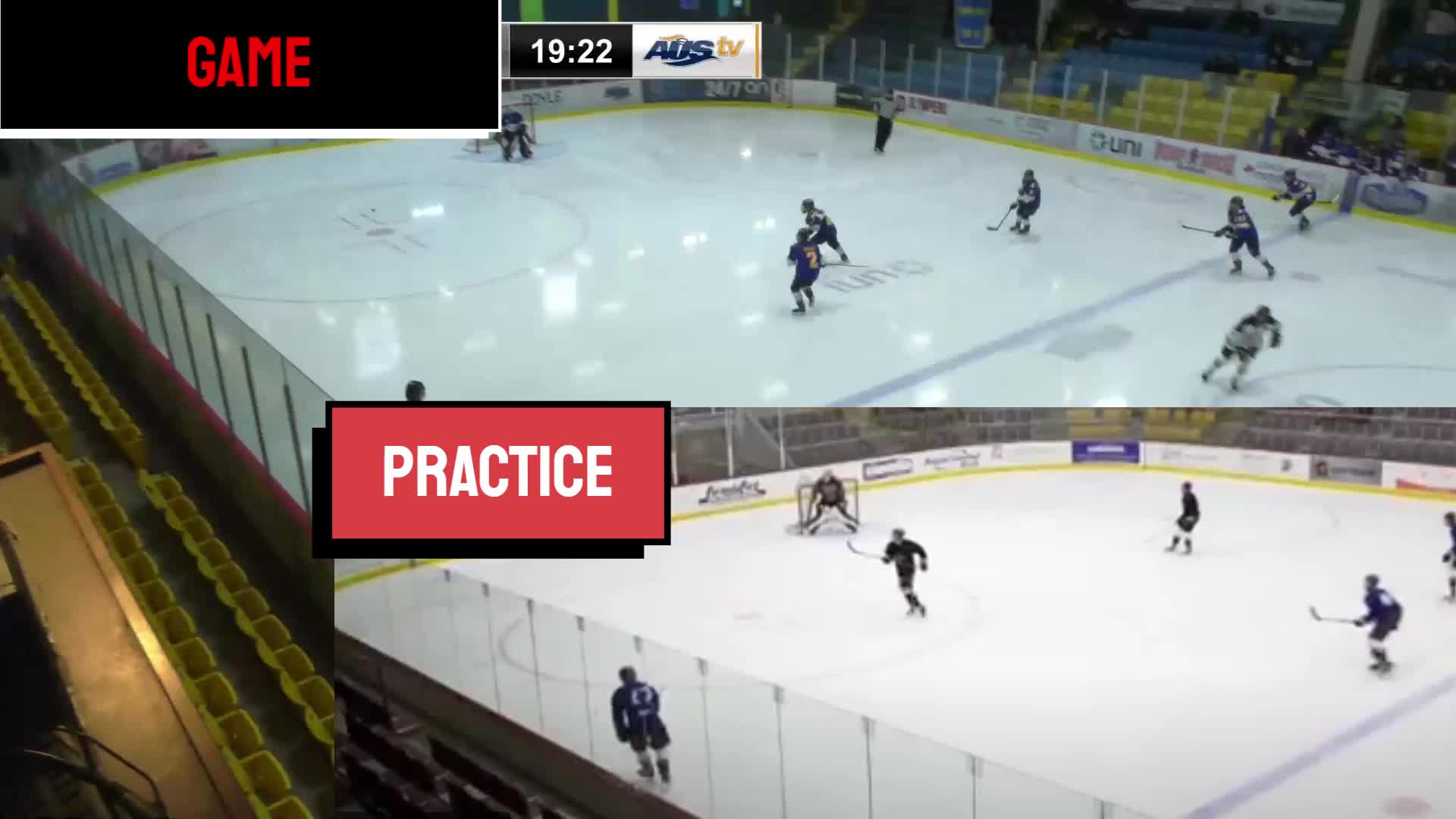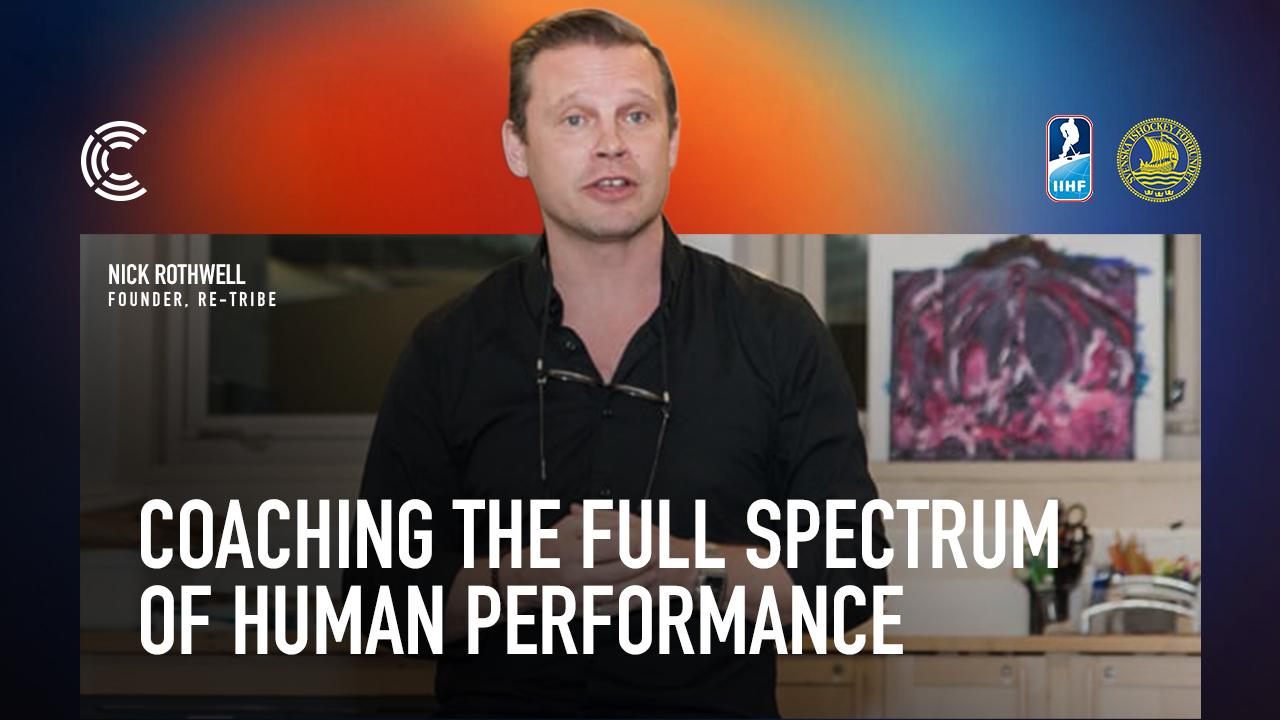When Kate Whitman Annis, Executive Director of the New Jersey Devils Youth Foundation, spoke at TCS Live in 2025, she opened with two powerful stories. In one, her team won a championship under high-pressure circumstances. In the other, her most talented player was disengaged and checked out. The contrast was striking: success isn’t always about the scoreboard, it’s about connection, belonging, and engagement.
“Team sports prevent loneliness, build confidence, and develop leadership skills.”
She pointed out that 94% of C-suite women played sports, reinforcing the lifelong impact athletics can have on personal development.
Coaching Girls and Boys Differently
Throughout her 16-minute presentation, Whitman Annis shared lessons from her years coaching both girls and boys and the differences between the two:
- Girls ask why. Boys often jump into a drill without hesitation, but girls want to understand before they act. Not to challenge authority, but to get it right. At first, Whitman Annis found this frustrating, but later reframed it as a strength.
- Risk tolerance differs. Boys are less afraid to look foolish. Girls, conditioned by society to fear failure, often hold back until they trust their coach.
- Speaking up is harder. Girls are less likely to voice opinions, and this tendency often follows them into adulthood.
Her message was clear: coaches must celebrate risk-taking, encourage players to advocate for themselves, and teach them to take up space both on and off the ice.
Breaking Barriers in Newark
In a previous role, Whitman Annis was General Manager of the Metropolitan Riveters (a former professional women's team), and saw firsthand how much representation matters. Today, she coaches at Eastside High School in Newark, where the majority of her players face challenges outside the rink.
They walk to practice carrying their gear, enter the building through a metal detector, and at one point, even dealt with unsafe ice conditions. Yet, once they hit the ice, they were like any other team: driven, competitive, and eager to belong.
Through hockey, they found passion and community. And for Whitman Annis, that’s the heart of why coaching matters.
“We have the power to turn hesitation into confidence, to frame failure as growth.”
Three Coaching Principles
Whitman Annis ended her presentation with three principles every coach can adopt:
- Focus on Strengths First – Know your athletes’ challenges, but lead with their strengths. Support them as people first.
- Prioritize Preparation Over Perfection – Celebrate effort and progress. Success comes from trying, learning, and growing, not flawless execution.
- Speak Up, Step Up, & Own Success – Teach athletes to use their voices, advocate for themselves, and embrace leadership.
Coaching Challenge
This week, highlight one instance where a player took a risk - whether they succeeded or failed. Celebrate the attempt. Ask yourself: Am I reinforcing perfection, or am I encouraging growth and courage?
Download the three principles and coaching challenge here.
Noteworthy timestamps:
- 0:00 Two teams, two triumphs
- 3:05 Journey in hockey
- 4:25 Failing as a coach
- 7:10 Is coaching boys different than girls
- 10:00 Hockey as a pathway
- 13:00 Focus on strengths/Prioritize preparation/Speak Up
- 14:45 Evaluate yourself

